Not only space of result: today even a service environment as the laundry becomes the object of attention, to be able to combine functionality and aesthetics, with the aim of having everything you need and without it punching with the style of home. But what are the tricks? What are the project principles to be met to reach the goal?
The ideal would be to make use of the collaboration of a single supplier, given that there are also companies offering furniture systems dedicated to the laundry area (from the Scavolini Laundry Space collection to the Ideagroup Space Time series) but, by putting into practice some solutions do it yourself, you can still organize a pleasant and practical environment, both in case you have available an independent room to be dedicated to the laundry, and if you are obliged to compress it in the bathroom.
1. Integrate the drying rack
Trying to reduce the number of items to be disposed in the space dedicated to laundry is undoubtedly one of the first steps to be taken. The clothes rack, always a hindrance in any part of the house is placed, can be integrated into the wall units, so you can close it when unused and not be forced to have it always between your feet. Some models are sold in specialized stores; alternatively, it is possible to request a custom-made project from a carpenter, in order to adapt to the available space and the style already present in the bathroom.
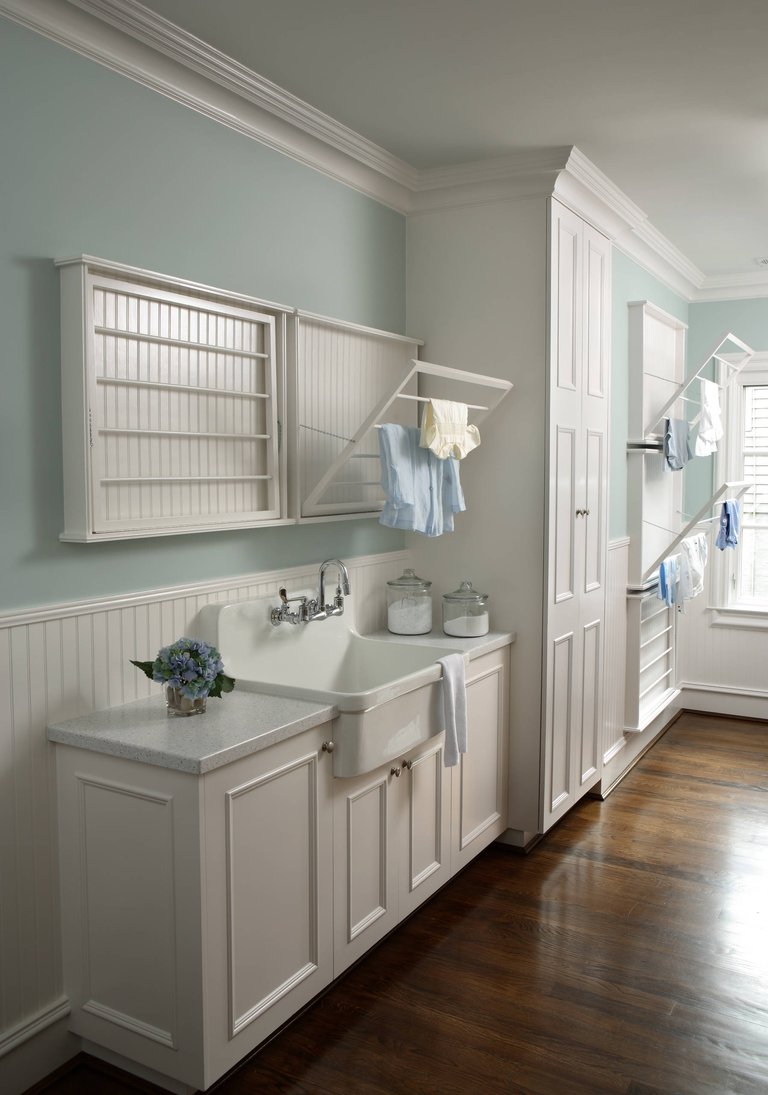
2. Embed and hide
In addition to the appliances, from the washing machine to the dryer, the other elements necessary in a laundry are usually small in size but still inconvenient if they do not have a precise location. Among these, the ironing board that, with its geometry and crossed supports, sometimes turns into a real obstacle. The problem can be solved by studying a niche tailored precisely for the axis, in which to store it when unused.
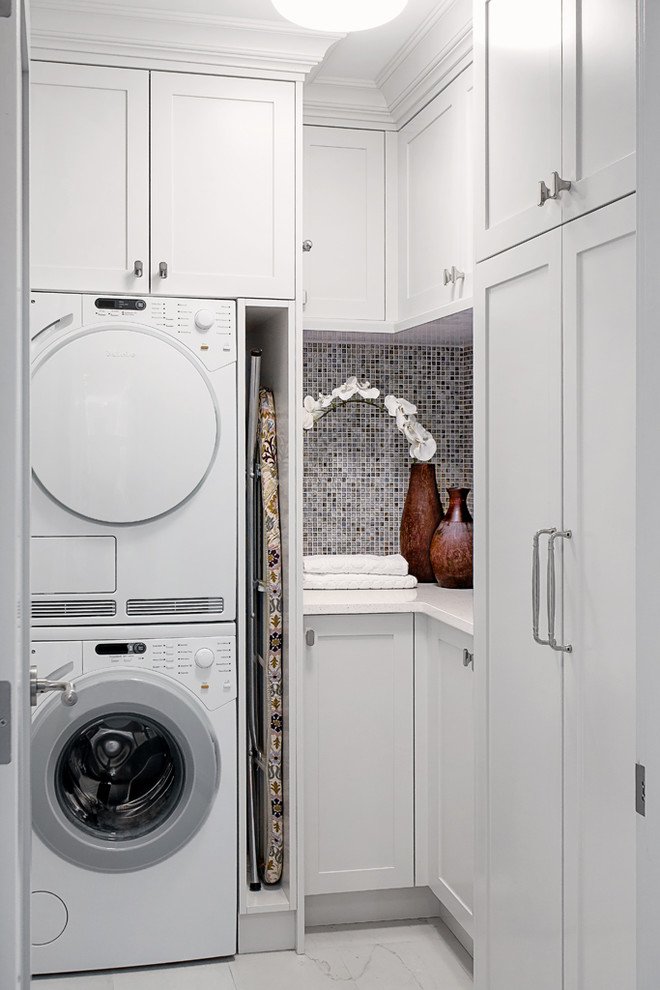
The niche can be organised vertically, if space allows it, or horizontal and with a rotation mechanism, so that the ironing board is hidden when unused and a single movement is enough to take it out and start using it.
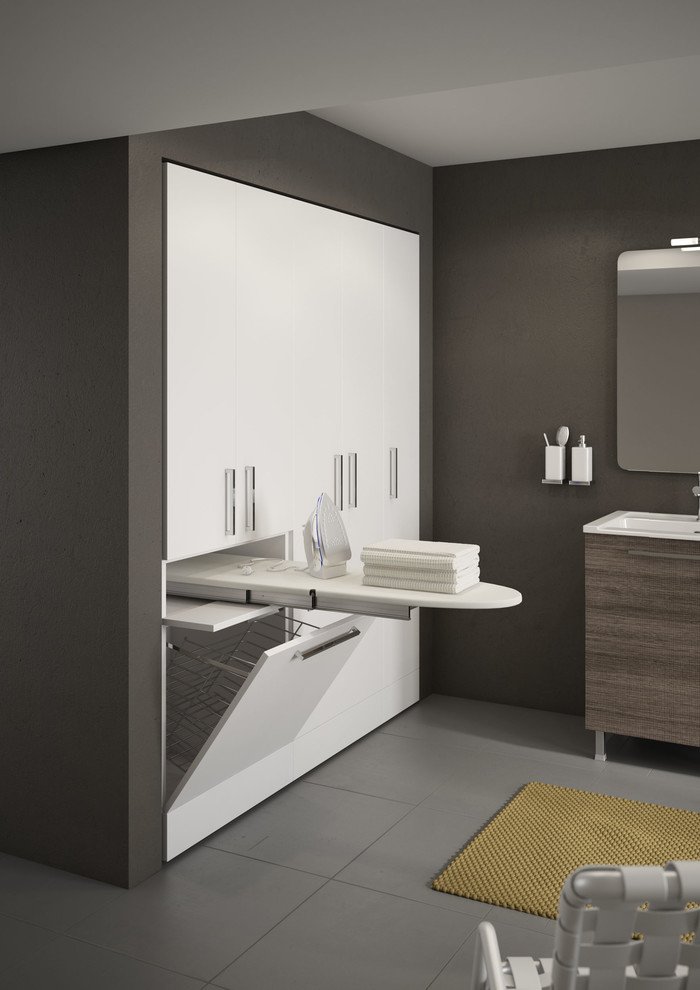
3. Mobility
Another idea to maintain the apparent order (and maybe even the cleaning!) Is to use mobile elements, such as laundry baskets equipped with wheels. In this way they can be moved easily when you want to load the washing machine and store directly in their space when empty or when used as containers. Coloured, in neutral tones or, perhaps, covered with the same fabric used as wallpaper, they are transformed into a style accessory, able to collaborate in creating a colourful and fun environment.
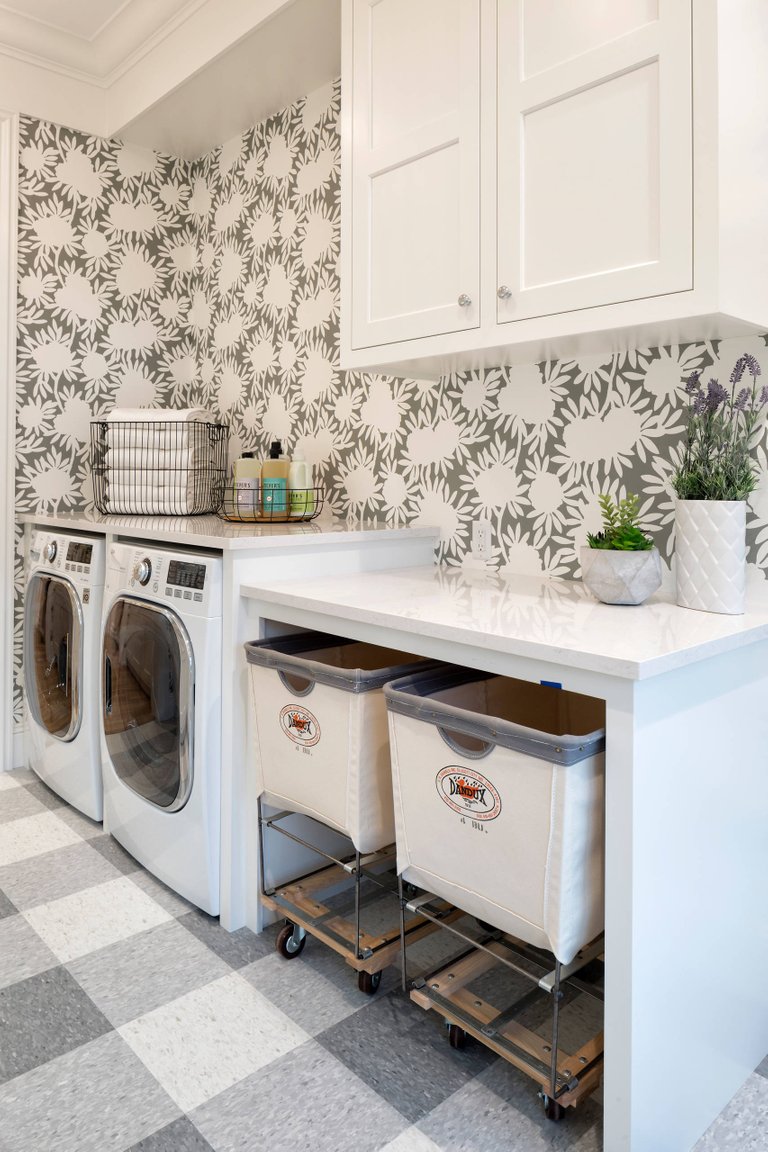
4. The importance of accessories
They are fundamental, we know. If in the living space the textile details, from cushions to carpets and curtains, radically influence the success of the interior design project, in a laundry room the same role is covered by accessories such as baskets, containers, bags, hangers, hangers and shelves . Coordinating each element is essential to ensure a homogeneous appearance to the laundry and to reach the very desired feeling of order and cleanliness.
The steps to be taken, therefore, are to choose and define a predominant colour, material and style, avoiding combining elements in contrast with each other.
.jpg)
5. Attention to finishes
The final touch, in the design phase, concerns the finishes, then what colour to give to walls and wall units and which coating to lay on the floors. Also in this case, the keyword is homogeneity. Looking for a stylistic line and maintaining it is a guarantee of success to design a coherent environment also from a chromatic point of view. This is confirmed by the colour designer Francesca Valan: "Choose a dominant colour, better if neutral or, in any case, not too strong, it gives comfort". Will then be the accessories or some single coloured element to create movement.
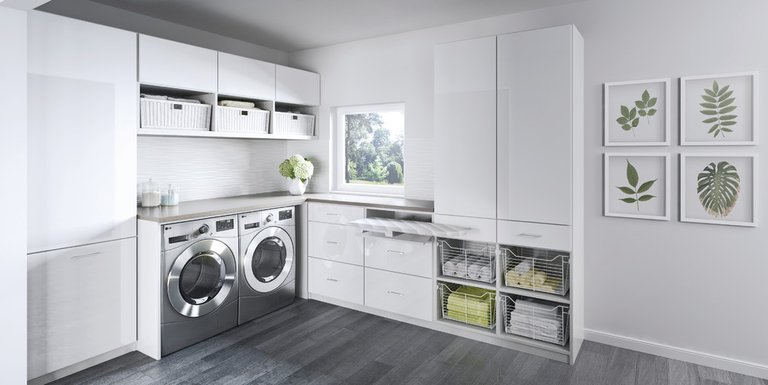
6. Modularity, first of all
Divide the perimeter of the environment into modules, provide furnishings that follow the scan and contain, inside them, everything you need in a laundry, is an effective solution not only to maintain order, but also to reposition the elements with ease if the needs changed or there was a move to prepare. The modularity of the furnishings also gives way to the sub-modules, therefore to elements of geometrically different but consistent dimensions, because the design principle remains unaltered.
.jpg)
7. Customised solutions
In case you did not have a whole room to be dedicated to the laundry space and the bathroom was also the space allocated to accommodate appliances and accessories, to hide everything comes to help the carpenter. With a sliding or folding door, when the hinged type is too bulky, you can hide the functional space without invading the bathroom.
.jpg)
Cool! I follow you. +upvote
Congratulations @oknoorap! You have received a personal award!
Click on the badge to view your Board of Honor.
Do not miss the last post from @steemitboard:
Congratulations @oknoorap! You received a personal award!
You can view your badges on your Steem Board and compare to others on the Steem Ranking
Vote for @Steemitboard as a witness to get one more award and increased upvotes!